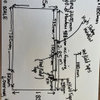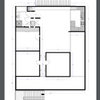Best Home Generator Buying Guide
A power outage can be a major inconvenience. Not only will you be without power, but depending on the time of day, you may also be without air conditioning or heat. If you have refrigerated food, it may go bad. The best home generators can help prevent all of this from happening by providing backup power to your home during an outage. In this article, we will discuss the different types of generators available and what factors to consider when purchasing one. We will also recommend some of the best generators for home use based on our research.
There are three main types of generators: whole-house, inverter, and portable. Whole-house generators are the most powerful and can provide backup power to your entire home. Inverter generators are smaller and more lightweight, making them easy to transport. They are also quieter than whole-house generators and produce cleaner power that is safe for sensitive electronics. Portable generators are the smallest and most affordable option, but they require manual setup and may not be able to power your entire home.
When choosing a generator, you will also need to decide what fuel source you want to use. Gasoline, propane, and natural gas are the most common options. Solar-powered generators are becoming more popular as well, as they are more eco-friendly.
Once you have decided on the type and fuel source, there are a few other factors to consider. These include the generator's warranty, noise level, and weight. You will also want to make sure that the generator you choose is compatible with your home's electrical system.
If you are looking for the best possible option, we recommend a whole-house generator powered by natural gas. However, if you are on a budget or only need a small amount of backup power, an inverter generator may be a better option for you.
Whole-House Generators
As their name suggests, whole-house generators provide backup power to your entire home. They are the most expensive option but also the most powerful, with the ability to run for days or even weeks at a time.
If you live in an area that is prone to long-term power outages, a whole-house generator is a good investment. They can keep your home running as normal during an outage, allowing you to avoid the hassle and expense of staying in a hotel or renting an apartment.

Inverter Generators
Inverter generators are smaller and more lightweight than whole-house generators, making them easy to transport. They are also quieter than whole-house generators and produce cleaner power that is safe for sensitive electronics.
Inverter generators are a good option if you need backup power for occasional outages or if you want to take a generator with you when you travel. They are also more affordable than whole-house generators, making them a good option if you are on a budget.
Portable Generators
Portable generators are the smallest and most affordable option, but they require manual setup and may not be able to power your entire home. They are a good choice for camping or tailgating, as they can provide enough power to run small appliances like a fridge or TV.
When choosing a portable generator, you will need to decide how much power you need. Portable generators are rated by wattage, and you will want to choose a model that can handle the electrical load of the devices you plan to run. You will also need to factor in the weight of the generator, as some models can be quite heavy.
Solar Generators
Solar generators are powered by solar panels, making them a more eco-friendly option than gas-powered generators. They are also quieter and require no fuel, making them easy to use.
Solar generators are a good choice if you want to reduce your carbon footprint or if you plan to use the generator in an area where there is no access to gas. However, they are more expensive than other types of generators and may not be able to provide enough power for large appliances or extended outages.
What to Consider When Choosing a Generator
There are a few important factors to consider when choosing a generator for your home. These include the type of generator, fuel source, warranty, noise level, and weight. You will also want to make sure that the generator you choose is compatible with your home's electrical system.
Type
The first thing to consider is the type of generator you need. Whole-house generators are the most powerful but also the most expensive. Inverter generators are smaller and more lightweight, making them easy to transport. Portable generators are the most affordable but require manual setup and may not be able to power your entire home. Solar generators are powered by solar panels, making them a more eco-friendly option.
Fuel Source
The next thing to consider is the fuel source. Gasoline, propane, and natural gas are the most common fuel sources for generators. Solar generators are powered by solar panels, making them a more eco-friendly option.
Warranty
When choosing a generator, you will want to make sure that it comes with a warranty. Warranties vary in length, but most cover the generator for at least one year. Some manufacturers also offer extended warranties for an additional fee.
Noise Level
Generators can be quite loud, so you will want to make sure that the model you choose is not too loud for your home. Most generators have a noise level between 50 and 70 decibels, which is about as loud as a vacuum cleaner. If you are concerned about noise, you may want to consider an inverter generator, as they are the quietest type of generator.
Weight
The weight of the generator is another important consideration, especially if you plan to move it around. Portable generators can be quite heavy, so you will want to make sure that you can handle the weight. Some models come with wheels, which can make them easier to move.
Conclusion
Generators are a great way to keep your home powered
during a power outage. There are a variety of types to choose from, and each has its own benefits and drawbacks. When choosing a generator, you will want to consider the type, fuel source, warranty, noise level, and weight. You will also want to make sure that the generator you choose is compatible with your home's electrical system.





Vermyt taoxy
Related Discussions
Renovating ex housing commission house. Adding some character
Q
Extension - what works best with current home layout
Q
POLL: Perfect house in a bad location or awful house in a perfect one?
Q
Boarding Houses Design, Sydney-Wide Affordable Housing Solutions
Q